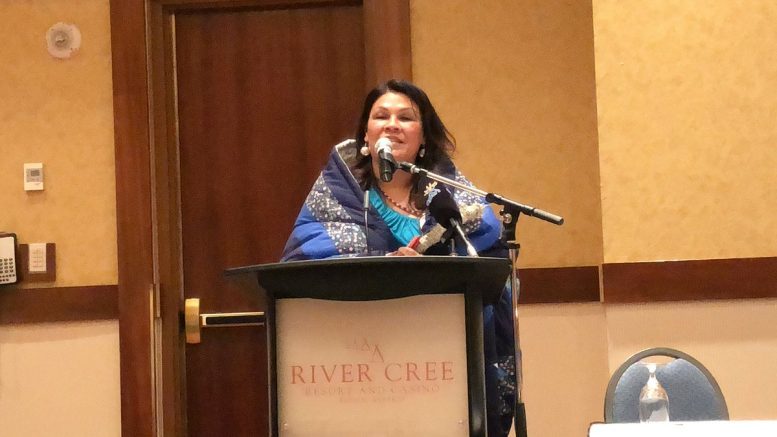By Jake Cardinal
(April 28, 2021) – Alberta has reached its second highest total of active cases since the pandemic began with 20,938 active cases.
There were 21,138 cases at the height of the second COVID-19 wave in December.
The province also has the highest active case rate in Canada, with 256 cases per 100,000 people.
Despite having outbreaks across the entire province, the Albertan oilsands and surrounding areas (including Fort McMurray) have been experiencing particular hardship.
Twelve oilsand production sites have experienced outbreaks with over 2,000 COVID-19 cases being linked to these facilities, according to Alberta Health data. Sites owned by Exxon Mobil Corp.’s Imperial Oil and Canadian Natural Resources Ltd. have also reported outbreaks.
1.5 percent of the Fort McMurray population is infected with COVID, which is the highest rate in Alberta — which ultimately makes it the highest rate in Canada, government data shows.
Because of the growing number of COVID cases in the oilsands, the Regional Municipality of Wood Buffalo (RMWB) in Northern Alberta declared a state of local emergency on Sunday, April 25.
“It’s out of control,” said the Chief of the Athabasca Chipewyan First Nation, Allan Adam.
“I am more worried about our health-care system. If that collapses, then all hell breaks loose.” – Chief Allan Adam
However, despite the clear correlations between active COVID cases in the Wood buffalo region and oilsands production sites, Alberta Premier Jason Kenney implied that the rising cases in the area were because of Indigenous people.
“The population up there is disproportionately Indigenous,” said Kenney.
He then followed up by mentioning “vaccine hesitancy” in the Indigenous population and “extra outreach efforts” done by the government to try and address this.
“We’ve had a much lower age eligibility for vaccination for that First Nations population, and we have done a lot of extra outreach efforts working with the First Nations to address vaccine hesitancy and to make it as convenient as possible in a culturally sensitive way to deliver those vaccines,” said Kenney.
He said that the RMWB also has a large, un-used vaccine supply.
However, just 4.5 percent of all COVID cases have been in rural and Indigenous communities; the only workplace outbreaks outside of Fort McMurray have been at oilsands camps and sites; and no schools in the greater Fort McMurray area have experienced outbreaks.
Assembly of First Nations Regional Chief Marlene Poitras believes that the comments made by Kenney were derogatory.
“The use of the word ‘disproportionate’ in this context is derogatory, and shows the deep roots of white privilege and colonial practices.” – AFN Regional Chief Marlene Poitras
“There are many areas where Indigenous populations are ‘disproportionately represented’ like prisons, and in having chronic and severe health conditions like diabetes, education, housing, infrastructure, and access to proper health care services,” she said in a statement.
“Where we are not ‘disproportionate’ is our existence as a people living in our traditional territories.”
And again, despite all of this, the Alberta Government has no plans to implement any new restrictions.
“The Indigenous communities took measures into our own hands to protect our people,” said Chief Allan Adam of the Athabasca Chipewyan First Nation in a statement. “Kenney could have done the same, but even after a year, has chosen not to. And who does that hurt? The residents of the RMWB.”



Be the first to comment on "RMWB COVID outbreak is unmanageable and Kenny’s derogatory comment is palpable"